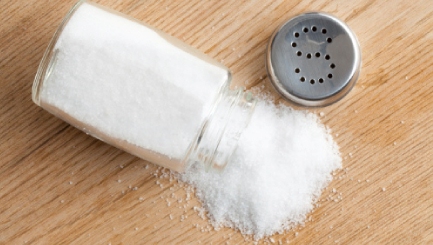Salt has Same Effect on Your Wellness, Regardless of Price
 There are certain myths that surround ‘fancy’ rock and sea salts with regard to how they’re ‘better’ for your wellbeing. Claims are made that gourmet salts contain less sodium than table salt, or more minerals which are essential for your wellness. You might believe that your weight loss success is improved by switching to gourmet salts, as they taste better or stronger so you can use less. There are more of these theories about the benefits of gourmet salts, but the Consensus Action on Salt and Health, or CASH, has proven that there is not one jot of evidence to prove these, and gourmet salts are just as damaging to your health as regular salt.
There are certain myths that surround ‘fancy’ rock and sea salts with regard to how they’re ‘better’ for your wellbeing. Claims are made that gourmet salts contain less sodium than table salt, or more minerals which are essential for your wellness. You might believe that your weight loss success is improved by switching to gourmet salts, as they taste better or stronger so you can use less. There are more of these theories about the benefits of gourmet salts, but the Consensus Action on Salt and Health, or CASH, has proven that there is not one jot of evidence to prove these, and gourmet salts are just as damaging to your health as regular salt.
A CASH survey looked at 7 supermarket and online salt products, including 1 table salt. According to CASH, nearly 100% of the rock and sea salts surveyed were accounted for by sodium chloride. This is just the technical word for salt which means that gourmet salts are just cleverly marketed seasonings that are no different from table salt.
Further, a Which? member survey showed that of the people who buy rock and sea salt, 24% believe it is healthier and 39% think it’s more natural than table salt. Natural is a word that gets banded about during healthy marketing strategies, but all salts are technically natural as they are all made of sodium chloride, but this is a metallic substance which is not healthy. The combination of sodium and chloride, which forms salt, can raise your blood pressure which can lead to an increased risk of stroke, heart failure and heart disease, osteoporosis, stomach cancer and kidney disease.
Even though a lot of TV chefs sing the praises of rock and sea salts, some chefs, including Antony Worrall Thompson, Levi Roots, Gordon Ramsay and Raymond Blanc all support CASH. According to a press release from Professor Graham MacGregor, Chairman of CASH, ‘It is disgraceful that [some] chefs still encourage people to use so much sea and rock salt. This has the added danger that, as the crystal sizes are much larger and don’t taste as salty, more salt is consumed. Reducing salt intake by just by one gram per day is predicted to prevent over 6,000 deaths from strokes and heart attacks a year.’
Therefore, it is unnecessary to pay the 22 fold difference in price for premium sea salt, which retails at £1.80 per 100g as opposed to table salt which comes in at just 8p. Consuming too much salt damages your wellness, but too much gourmet salt also damages the wellness of your wallet!


Comments are closed.